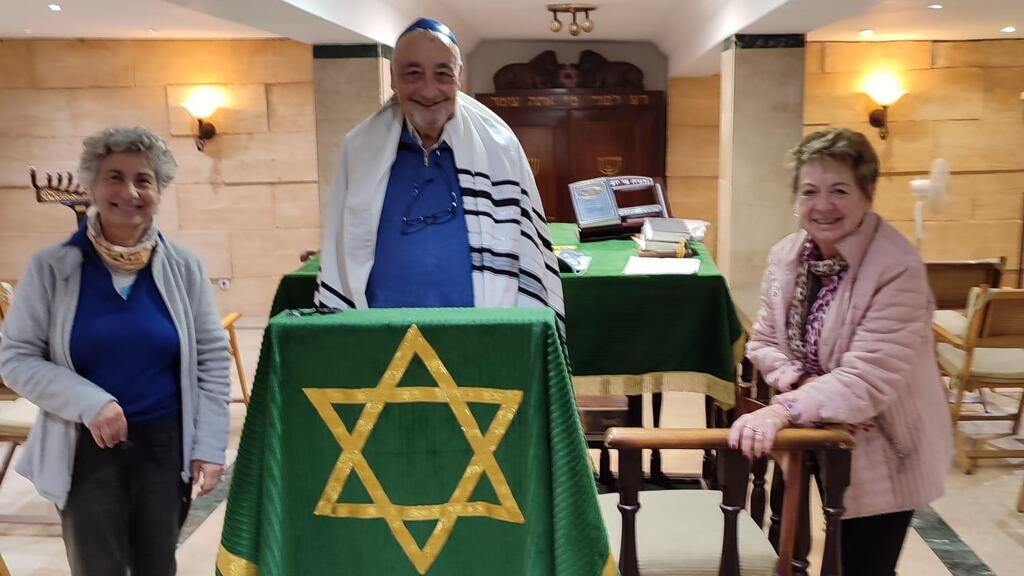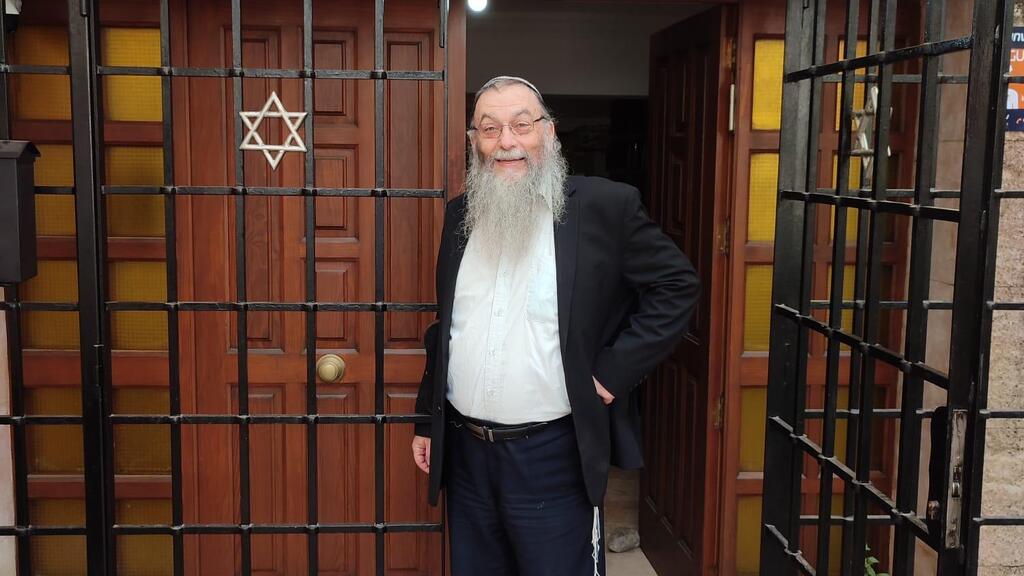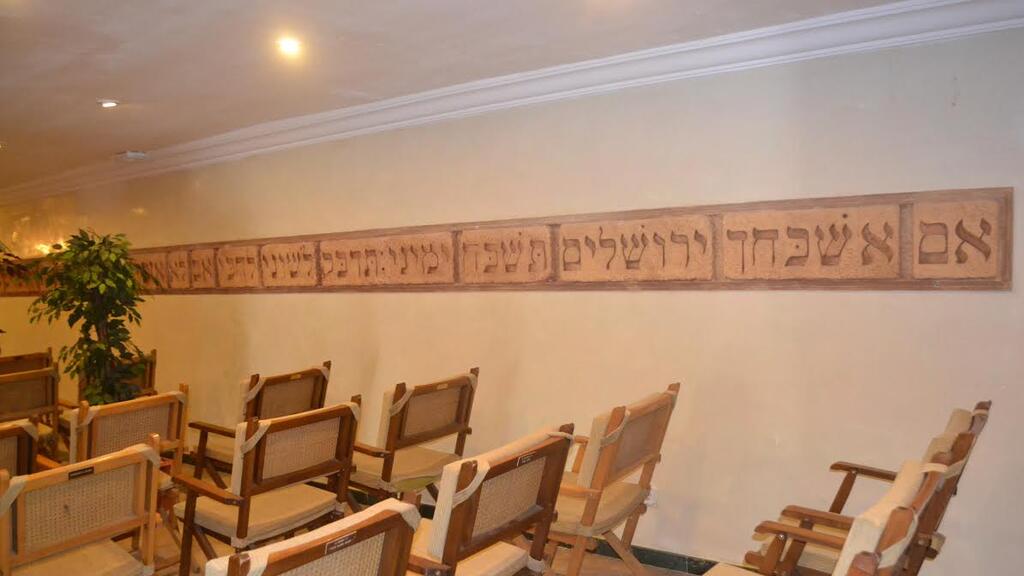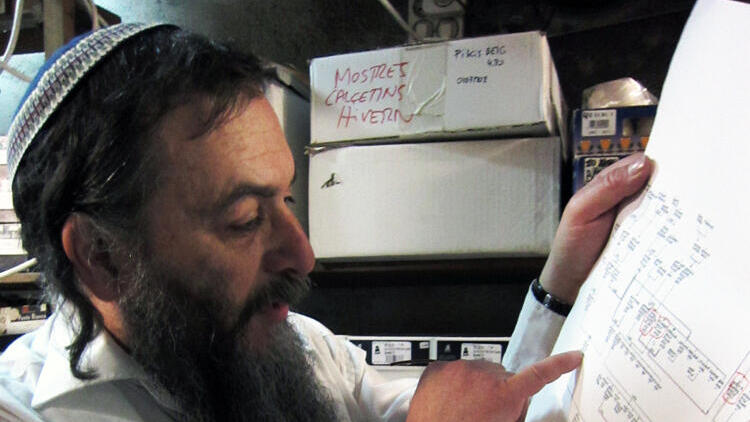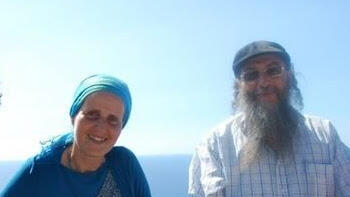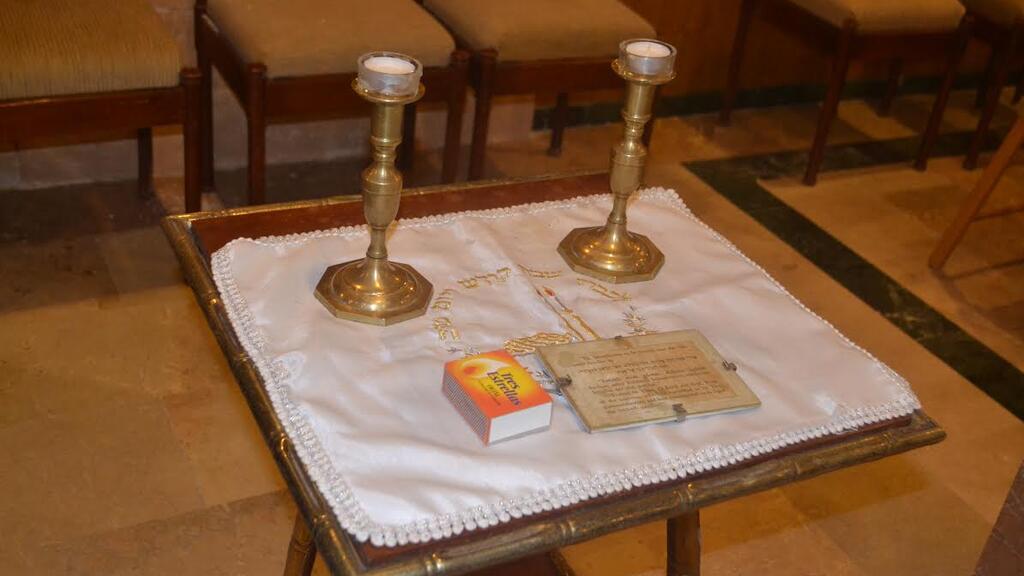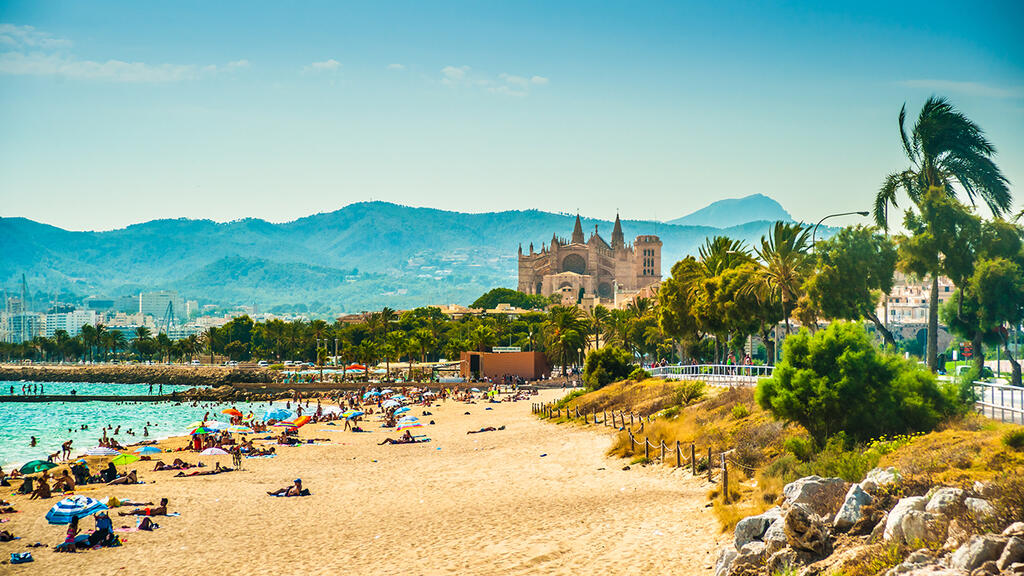Getting your Trinity Audio player ready...
“We went to church every Sunday, but at home, a candle burnt all week. It was a candle for the Holy Shabbat,” said Pinchas, from the Piña family, descended from Jews from Palma de Mallorca who were forced to convert to Christianity during the Inquisition 600 years ago.
When asked by small Jewish communities researcher, Ayelet Mamo Shay, how he discovered his Judaism, he replied confidently that he had always known. His grandmother used to shout at them about not mixing meat and milk and even used a special knife to slaughter chickens in a particular way. Piña tells us that he himself slaughters chickens with the same “special knife”.
The Spanish resort city is presently home to 50 families. Within this tiny community, internal conflicts have developed between those who ancestors had resisted converting to Christianity and the Conversos who have now decided to return to Judaism. Following centuries of forced conversions, decreasing the community, these internal conflicts are presently endangering the community’s continued existence.
Palma de Mallorca, capital of the Balearic Islands in Spain, boasts a rich Jewish history, replete with upheavals. Some claim that Jews arrived there as early as the destruction of the second temple in 70CE. Island natives include renowned posek, Simeon ben Zemah Duran, 1391-1444 (known as the Rashbatz), classed among Algeria’s greatest rabbis. The community’s story starts gets interesting (and some say dark) during the Inquisition and the 1492 expulsion of the Jews from Spain.
In 1435, the island’s 4000-strong Jewish community was forced to convert to Christianity. There has been no openly Jewish community on the island since. Synagogues were converted into churches and crosses adorned doorways of the once Jewish quarter. Any Conversos caught keeping Jewish laws, mitzvot were expelled.
Ayelet Mamo Shay - business woman, journalist and professional researcher of small Jewish communities around the world - has studied the history of the Jewish community of Mallorca and often visits the island. She explains that 15 families are classified as “Chuetas” - a derogatory term used to refer to families who converted to Christianity and who were effectively ostracized from the local Christian community.
“Anyone with the names Aguiló, Bonnin, Cortès, Fortesa, Fuster, Martí, Miró, Picó, Pinya/Piña, Pomar, Segura, Tarongí, Valentí, Valleriola or Valls was sentenced to a life of hardship and social and economic exclusion. Although they couldn’t live as Jews, they found themselves excluded from the Christian community and would only marry only among themselves,” Mamo Shay says.
Jewish life continued in secret. The island’s architecture bears witness to secret passageways from family homes to the churches which used to be synagogues. Buildings betray various giveaway features; strange customs involving lighting candles, fasting on days that do not correlate to the Catholic calendar as well as rituals and customs related to eating and preparing food.
The descendants of these families recounted these memories to Mamo Shay, who also serves as chair of the Gibraltar-Israel Chamber of Commerce, was made aware of these facts by descendants of those families, whom she interviewed as part of her research.
Mamo Shay tells us that the issue of the returnee Conversos is widely known among local communities. “We had a wonderful meal prepared for us by the former chef of the king of Spain, who is descended from a Converso family. He told me that he left the prestigious position because he wanted to return to his Jewish roots. He said ‘I feel terrible cooking pork.’ He also told me about secret rituals practiced by his family, including immersing oneself in water and separating milk and meat.“
Jews have been returning to Mallorca over the past few centuries. For many years, the Jewish community operated separately from that of the Chuetas, who are now reclaiming the name. Until seven years ago, the Mallorca Jewish community numbered 100 Jews, and 30 returners, armed with centuries-old genealogical records detailing births, deaths and marriage records from local Catholic churches proving their Jewish roots.
The man who guided them back to Judaism is Rabbi Nissan Ben Avraham, a Mallorca native descended from the Converso Aguiló family, who himself “returned”. Rabbi Ben Avraham stresses that he, too, had always known about his Jewish roots.
“It was most evident in getting beaten up at school in the 1970’s, during Franco’s rule. For the 500 years since the expulsion of the Jews from Spain and the forced conversions, all religions other than Catholicism were officially forbidden. In the 1970’s, other religions began being permitted – but even that was in an informal capacity. As a teenager, I was surprised to discover a Jewish community. It was a Reform congregation of Jews from England. They rented out a room in a hotel that they used as a synagogue. I started attending weekly services and playing bridge there. This was 50 years ago now,” says Ben Avraham.
In 1977, aged 17, he made Aliyah. As his Jewish descent is only on his father’s side, he underwent a strict, Jewish legal hallachic conversion overseen by then-Chief Rabbi Shlomo Goren. “The conversion process in Israel was much simpler back then. It would be impossible today. I met the chief rabbi who asked me where I was from. I told him I was from Spain. He asked me whereabout in Spain. When I told him Mallorca, he immediately said ‘Ah, you’re a Chueta!’. That was Rabbi Goren. He was well informed about the history of the Jewish People. My conversion ‘birthday‘ is the 10th of Nissan", the day I began the process.
It was a long process before Rabbi Ben Avraham became a Mallorca rabbi. “Some 19 years ago, I was approached by an organization called ‘Amishav’, run by Rabbi Eliyahu Avichayil, who was looking for ‘lost Jews’ from all over the world. They told me that there were Conversos in Spain who wanted to return. I was surprised. I was raised there. There aren’t any Jews there. I was told that I was mistaken and that there were more Jews who had secretly kept up their religion.
“We went to Spain and I found more people in Mallorca as well as Grenada, Cordoba and Barcelona interested in returning to their roots. We made contact with a group in Mallorca who wanted to come back to Judaism and I started visiting those communities.
“Amishav split, and a new organization, called ‘Shavei Israel’ was founded. Rabbi Avichayil died a few years ago and his organization ceased to exist. I was in close contact with him for many years. He’d host me for Seder nights. The split was very difficult. I did the legwork for Shavei Israel until 2017. I’d show up for two weeks stints Grenada, Seville and Mallorca."
A year ago, the Mallorca community invited him to serve as their community rabbi. “Now, I’m two weeks here in Israel, two weeks in Mallorca. I’m married, with children and grandchildren. My mother and siblings, who are not officially Jewish, live in Mallorca.”
He says that in some cases people have been separated from Judaism for 600 years. “The 1391 riots in Spain made whole communities, such as those of Seville and Grenada, disappear. In Mallorca, 300 were killed and a further 700 were forced to convert to Christianity.”
The families did not completely assimilate and Jewish symbols didn’t entirely disappear. “Mallorca has the advantage of being an island. It’s closed off. There was no freedom of movement, so the community kept to itself in terms of marriages and they carried on living inside the Jewish neighborhood.”
Rabbi Ben Avraham explains that proving Jewish ancestry is no easy task for the descendants of Conversos. “Birth and death registration only began in 1550, so we have a gap from 1490 to 1550. It’s very difficult to verify what happened in those years. However, if they find someone with your family name who was executed years later by the Inquisition for being Jewish, then that proves your connection.”
He estimates that “there are about 1000 people who are halachically Jewish, but very few actually return. We’re now organizing a group who don’t intend making Aliyah that will be heard by a beth din - a rabbinical court of Judaism. It’s good that they’re formally converting. The Chuetas married among themselves until World War II, when decreasing antisemitism, coupled with assimilation, made the community start opening up. Jewish descent is more difficult to trace at this stage.”
The Chuetas, subjected to various forms of oppression in Mallorca, started emigrating, sparking debate regarding their Judaism. In Israel, Rabbi Nissim Karelitz formally addressed the matter. “I was in the room when it happened,” says Rabbi Ben Avraham. “He replied affirmatively when asked whether the Chuetas were Jewish. He was asked whether they could be included in a prayer quorum, a minyan, and he said ‘Yes, they’re Jews’. He was asked whether they needed strict conversion and he responded that it wasn’t necessary, but possibly before marriage. The problem is that in Israel, the chief rabbinate refuses to accept this position.”
In the Golden Age before the Inquisition, four synagogues functioned on Mallorca. They were all converted into churches. Today only one synagogue - “Benjamin Klien,” named after a British congregant - is operational on the island. Rabbi Ben Avraham explains that Klien was a Holocaust survivor married to a Yemenite woman from Tel Aviv’s Hatikva neighborhood. The synagogue uses the Sephardic nosach (prayer rites).
Mallorca’s present community membership is mainly made up of Jews from North Africa and South America. Mamo Shay tells us that in 2015, she identified the community as on the verge of extinction. “I celebrated Rosh Hashana there seven years ago. There were a lot of Jews, mostly very elderly. They held a community holiday meal with all the Jewish symbols. There were 93 people there – 90 adults and my three children. When I saw that there were no children there, I realized that the community was living on borrowed time.”
Mamo Shay tells us that the community’s younger generation leave to follow academic and professional opportunities and do not return. But this is just one reason for the community’s ongoing demise. “The Converso issue is complex, because over the years they haven’t been taken in. It’s created a lot of conflict, tension and animosity. The Conversos suffered when they were Jews. They were forced to become Christians and lead double lives, and when they wanted to come back, they weren’t accepted.
"The centuries-old tension between the Conversos and the Jews has permeated today’s community, causing some within the community to leave. The new community president is a Converso.”
Mamo Shay tells us that the former community president, Avraham Ben Shilon, says that the tension between the groups caused "an unavoidable blow-out and the Conversos gained control of the synagogue." Over the past three years, the two groups have been completely disconnected.
Why don’t new Jews join the community to strengthen it?
“It’s a mystery. During the COVID-19 pandemic, children of community members came back home, but when things settled down, they all left again. I’m sorry to say that there is no young leadership to facilitate the community’s continued existence. It’s very distressing to see a community that cannot survive.”
According to Rabbi Ben Avraham, the community is very small. "Less than 10 of the 50-strong community are Conversos who have already converted. There are others who are in the process of converting, who are waiting to be heard by beth din. One of them doesn’t need to convert. She just wants recognition of her Jewish status, which is an extremely complicated process.”
Rabbi Ben Avraham agrees. “They are definitely rejected on grounds of being Conversos. What can I tell you? It’s depleted the community. Some people who are opposed to the Conversos have simply left and don’t want to be part of the community. Mallorca has a vey rich local culture. Descendants of Mallorca-speaking Conversos started arriving on the island and it caused World War III. They feel Mallorcan and they have a clearly identifiable culture, but it wasn’t accepted in the community, I think it’s a shame.“
Maybe the Israelis living on the island could breathe a new life into the aging community. Ben Avraham says there are about 50 Israeli families on the island who are not formally part of the community. “This is also a shame. Israelis conduct activities in the synagogue - teaching Hebrew and leading children’s holiday activities on Purim, Tu Bishvat and Hannuka. I’d like them to be more involved.”
Mamo Shay says that some of the Jews of Majorca who have chosen to boycott the community, will be celebrating holidays elsewhere this year. And so, almost 600 years after the forced conversions in Palma de Mallorca, bitter frictions continue simmering in this tiny ancient island community.


